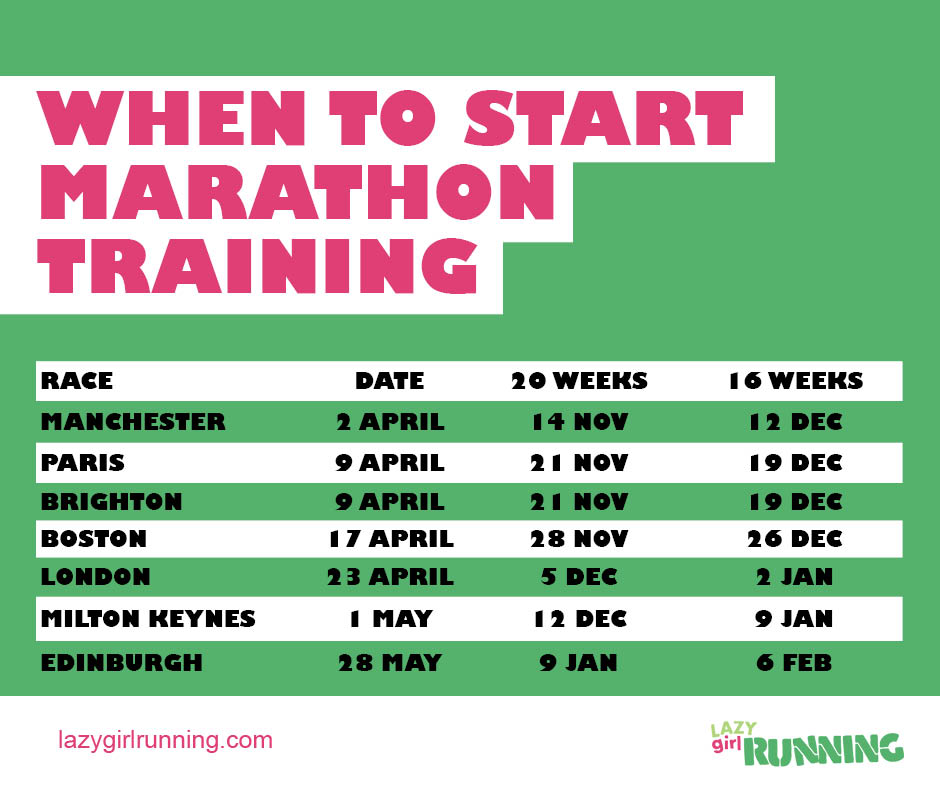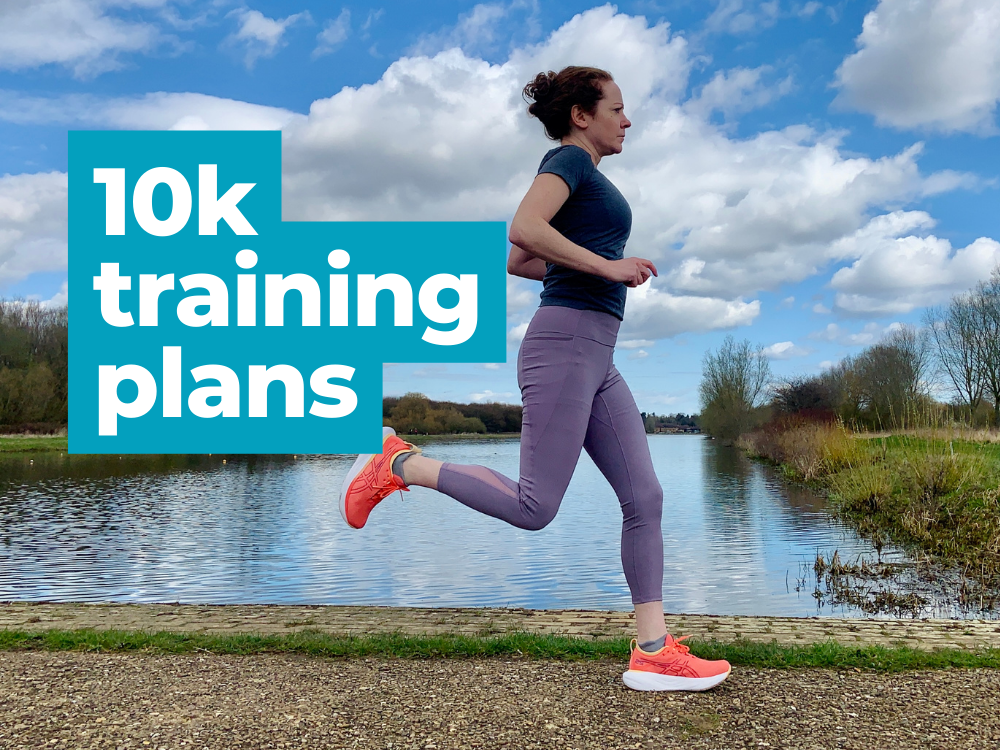When should you start training for your marathon? Well there’s no hard and fast answer to this that applies to everyone.
In the back of my mind, that first time I got on a treadmill nearly nine years ago I was training for a marathon. I didn’t know when or where it would be, and I couldn’t run more than a couple of minutes at a time, but the marathon was my ultimate goal.
It was two years before I’d run a marathon, and although all my running had been working towards that point, the actual concerted effort of building up my mileage towards race day was taken care of by a 16 week plan I’d found in an old book.
We’re all at different points in our running. Some will be just starting out, some will have signed up for their first marathon, others might be doing their second, third or 100th marathon next year. So the question of how long you need depends on that as much as it does on what your goal is.
One thing is true for everyone though: the longer you have to train, the more sensible you can be and the better result you can achieve. I was invited to a European marathon next weekend and as much as I was tempted I knew two weeks of training weren’t going to lead to a race I wanted.
If you’ve just off of an autumn marathon, take time to recover before jumping into another training cycle. I know you’ll be keen and eager to get going again, but don’t do too much too soon.
I shared the graphic below on Twitter and Facebook last week to help runners decide when to start training. I hope it’s helpful to you.
I’m hosting a one-day marathon workshop for first-timers in January. Come and spend the day talkingmarathons with me.







Helpful training length guidelines for sure! I had originally planned out 20 weeks…but after 6 weeks of training had to take 6 weeks off. Ouch!
Thanks for the post. I have historically looked at 16 and 18 week plans, but I really want to PR next year and I know I need to work not just on my physical training, but also on my fueling strategy. My previous strategy (or lack thereof) worked just fine when my only goal was to finish, but now that I’ve set some bigger goals, I want to approach things very differently. Looking forward to following!
Thanks for this. A marathon is a possibility in 2018 so this gives me an objective guide for getting started after my 2017 return to the half-marathon.
When I ran my first marathon, I only allowed myself 8 weeks for training and regretted it. After an injury from training too hard too fast, I trained for 18 weeks on the second go around. Not only did I stay injury free, I also enjoyed it so much more, which made a huge difference.
Diana
http://betterthanalive.com/
Is there an advantage for doing a 20 week versus a 16 week or vice versa? I ran my first marathon using a 20 week program and I did better than I anticipated, but I was also really drained by the end of the 20 weeks. My worry was that a shorter program wouldn’t have prepared me mileage wise.
Hi Mai
Even if you choose a 16 week plan (or even shorter) you should be running in the weeks before your marathon training starts in earnest so that you’re not going from zero miles one week to 20 miles in week one of you plan. So some people ask me for a 20 week plan so they’ve got a little more structure to those weeks, particularly if their current mileage is low or they want to build up their distance more gradually. Some people have other races or events less than 20 weeks before their marathon so can’t dedicate 20 weeks to marathon training. So it’s really a case of how much time you have and what your current training looks like.
Hope this helps.It’s vague answer but everyone is different with different goals and commitments, and that’s why there’s no one-size-fits-all plan that works for everyone.
Laura.